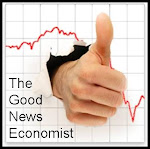For Mark Hirschey, Professor of Business at the University of Kansas, much of the dire commentary on the U.S. economy is significantly overblown.
Hirschey is the co-author of “Investments: Analysis and Behavior” (McGraw-Hill, 2008), a textbook that combines the study of behavioral finance with an introduction to the field of investments. This KU economics research expert has also written 100s of other scholarly economics publications.
Hirschey agrees with much of what has been blogged here.
On the Stock Market: “On average, stocks go up, the history of the U.S. stock market is a slow, steady advance punctuated by sharp, irregular declines. We’re in a huge irregular decline right now, but that’s pretty rare and usually they don’t last very long. If you look through the last 50 years, this is the ninth sharp bear market — and usually they last a fairly limited period of time... expect stock prices to be much higher a year or 18 months out.” (See Bottom Feeding)
On Housing Price Declines: “The boom-and-bust cycle in home prices has had little effect on homeowners in 34 of 50 states, a fact almost always omitted in discussions of the housing market. There are a number of things you have to keep in mind when you characterize this decline. First of all, it’s not uniform across the United States. The epicenter of the decline is California, Nevada, Arizona and Florida. Home prices nationwide are down about 9 to 10 percent from the peak only because there have been 25 to 30 percent declines in those major markets. As the economy recovers, expect to see continued rising prices in places untouched by the boom and the bust.” (See Must Come Up)
On The 1920s and 30s: “The Great Depression and the current economic situation have very little in common. During the Great Depression you saw unemployment of 25 to 30 percent. We presently have unemployment in the 6-plus percent range and people are concerned it might go to 8 percent." (See Jobs)
On The Timing of a Recovery: "The typical recession lasts less than 18 months. The National Bureau of Economic Research says we entered a recession in December 2007 — and I believe it. If you look at history as a guide here, it would suggest that sometime between now and the Fourth of July in 2009, you’d expect business to once again turn up and start to reflect the basic strengths of the U.S. economy.” (See Macro Market)
Thanks for the Good News Professor!







0 comment(s)... (click here to add yours):
Post a Comment
We want to hear from you, and you know you want to say something...